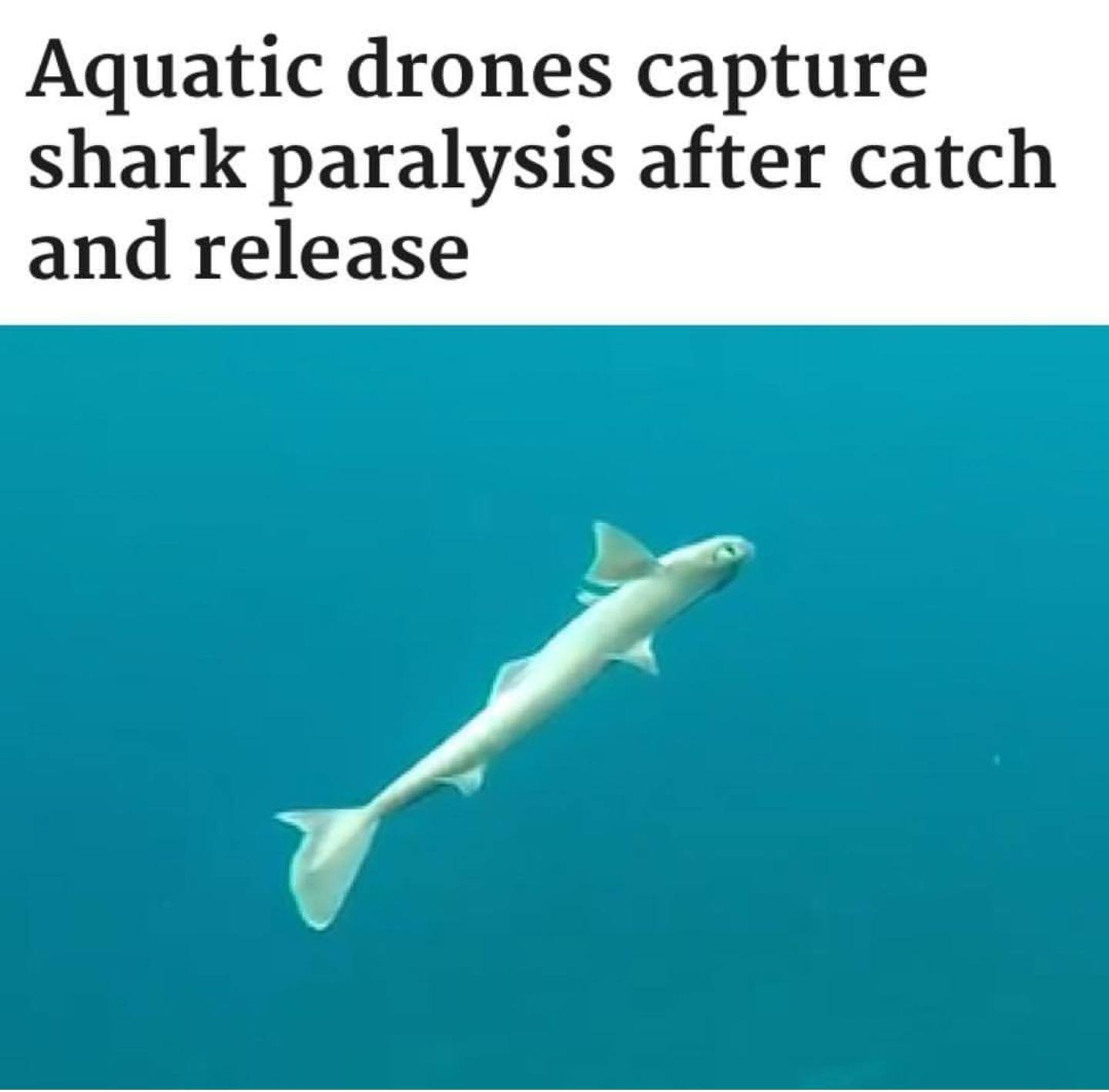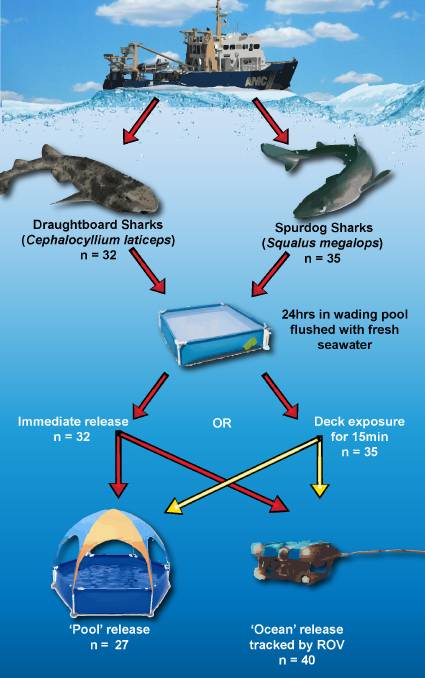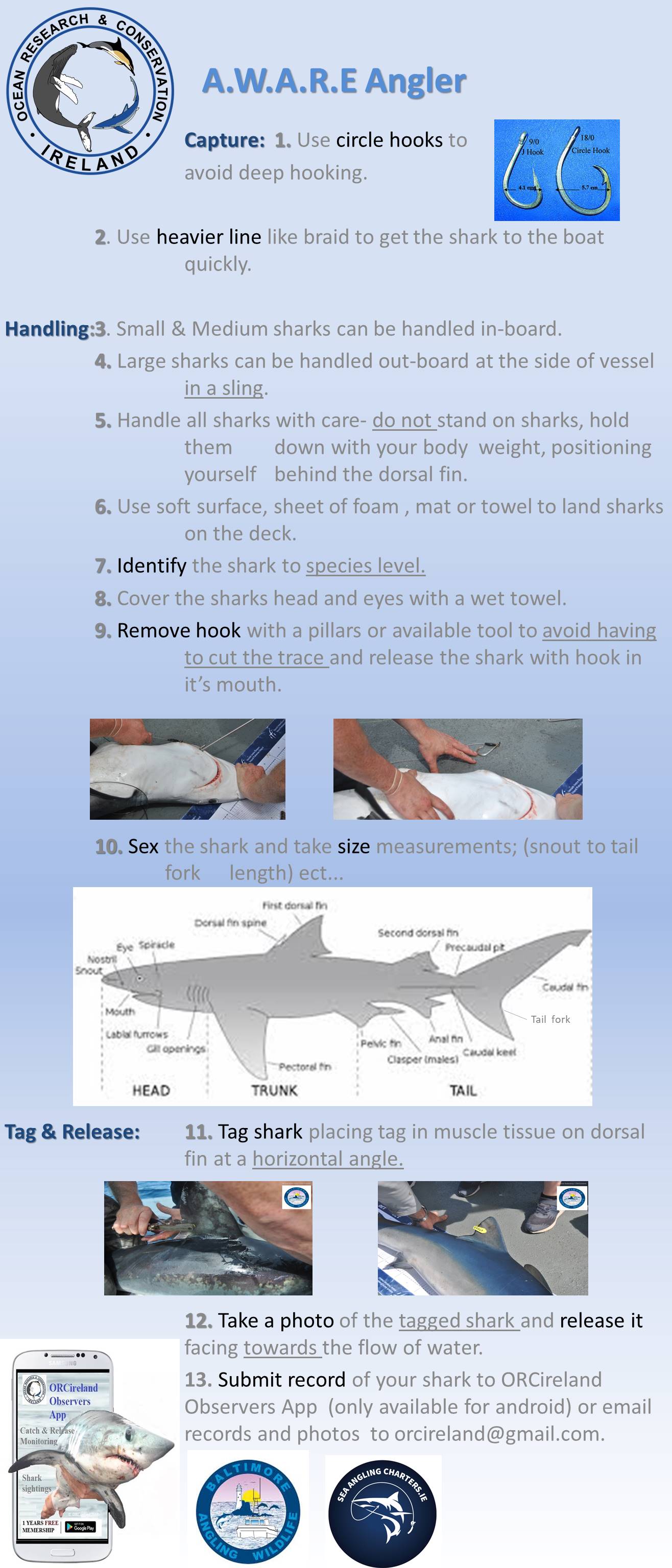Australian study reveals shark paralysis after catch and release.
A study led by the University of Newcastle has shown that taking “selfies” with the shark that you have just caught may do wonders for your social media profile, but it could also reduce the shark’s chances of survival once returned to the sea.
Post- release mortality estimates have been determined for a number of shark species, however the short-term sub lethal effects of capture, handling and release are poorly understood and have mostly been studied in controlled conditions.
The new study analysed the effects of deck exposure to post release behaviour of two species of shark; the draughtboard ( Cephaloscyllium laticeps ) and the piked spurdog ( Squalus megalops ) in situ using using a remotely-operated vehicle (ROV) and in a replicated controlled experiment. A total of 67 sharks were caught using demersal trawls and commercial longlines and were were subjected to different deck exposures and release environments.
The study revealed that the shark species captured and exposed to a boat deck for 15 minutes swam away post release for a maximum of 30 seconds and then became largely immobile for up to five minutes.
Tailbeat rates of deck exposed sharks were found to be significantly lower than those of the controlled experiment, however this effect varied from in
- situ
and experimental environments.
The study concluded that capture and release has species specific effects and that post release effects may last as long as 5 minutes. It also concluded that controlled experiments were not necessarily a good indicator of post-release stress and post release swimming is not a good predictor of post-release behaviour, suggesting that catch & release fisheries may have significant sub-lethal effects on some species of shark.
Limiting capture or handling time may reduce post-release effects on sharks and this study highlights the need for further investigation into the effects of catch and release of sharks species in Irish waters and the need for charter boats and anglers alike, around Ireland to adopt "Best Practices" as outlined below.
The shark species examined in this study were smaller in length and weight than many of the species caught and released in Irish waters, for example the draughtboard shark reaches a total length of 0.82 cm, while the piked spurdog reaches a max length of 56 cm, in comparison, blue ( Prionace glauca ) and porbeagle shark ( Lamna nasus ), regularly caught in catch & release fisheries in Ireland can reach a max length of 1.92 - 2.82 meters (110 kg) and 2.5 meters (130 kg), respectively. It brings to question as to whether larger species cope better with the stress of catch & release angling and highlights the need for similar studies to be conducted in Irish waters.
To date studies using satellite pop-off archival tags have shown movement patterns of sharks caught and released in Irish waters, showing there is a high survival rate of species caught, however no studies have been conducted on the sub-lethal effects of catch & release. Read more here: https://www.orcireland.ie/satellite-tagging-sharks-can-tackle-availability-bias-in-shark-abundance-e...
Further reading here: https://www.orcireland.ie/transatlantic-journey-for-porbeagle-shark-tagged-off-the-south-coast-of-ir...
If you would like to support our research into catch & release fisheries in Irish waters you can help us to raise funds to conduct similar studies here by donating today!Visit our homepage to donate at www.orcireland.ie.
Accredited operators courses for catch & release angling are also available to interested charter boat operators through our A.W.A.R.E Program ( A nimal W elfare A ware R esponsible E ncounters), contact us at orcireland@gmail.com for more information.
Reference
:
Raoult, V., Williamson, J.E., Smith, T.M., Gaston, T.F., (2018). Effects of on-deck holding conditions and air exposure on post-release behaviours of sharks revealed by a remote operated vehicle. Journal of Experimental Marine Biology
and Ecology
,511.
SHARE THIS ARTICLE
















